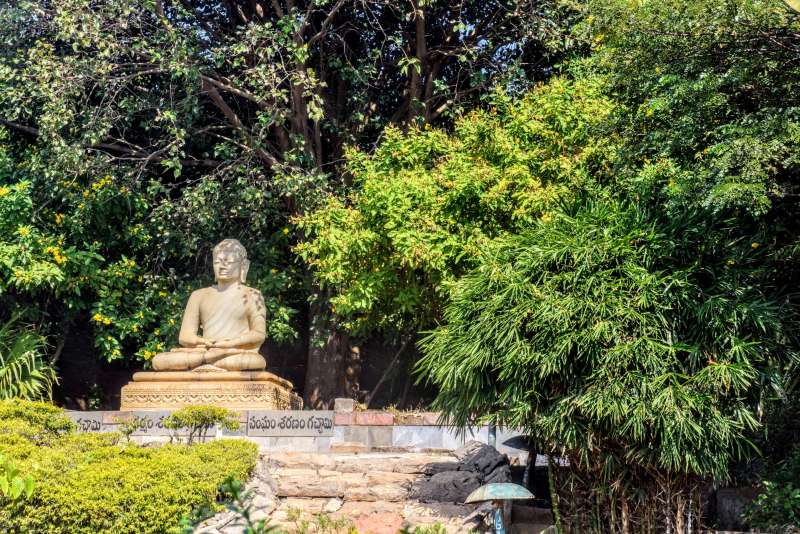Time Won't Wait – But You Can Make It Work for You
Published on: May 4, 2025
Time: The Ultimate Equalizer That Respects No One
Time is the only resource that is distributed perfectly equally to every person on the planet. Each day, whether you are a CEO, a student, or a retiree, you receive exactly twenty-four hours. No one gets an extra minute, and no one can bargain for more. Yet, the difference between those who seem to effortlessly glide through their day and those who perpetually chase the clock is not luck or genius—it's the way they make time work for them. Time is impartial, but your results are not. The truth is, time won’t wait for anyone, but you can absolutely learn to make it serve your goals, ambitions, and well-being.
The Myth of Busyness: Why Chasing Time Leaves You Empty-Handed
Modern culture glorifies busyness as if being overwhelmed is a badge of honor. But the reality is, constantly racing against the clock is a surefire way to burn out and achieve less. Chasing time is a zero-sum game—you always lose. Instead, the secret lies in flipping the script: make time chase you. This is not about squeezing more tasks into your day or hacking your sleep cycle. It’s about autonomy, clarity, and conscious decision-making.
Consider the paradox: some people manage billion-dollar enterprises and still find time for family, fitness, and leisure, while others feel crushed by a simple to-do list. The difference is not the number of hours, but how those hours are used. The frantic pursuit of more time is a trap. What matters is the quality of your time, not the quantity of your tasks.
Autonomy: Taking Ownership of Your Time
Autonomy is the linchpin of effective time management. When you feel in control of your schedule, you are more likely to use your time wisely and less likely to fall victim to stress and burnout. This sense of ownership doesn’t just happen—it’s cultivated through deliberate choices and boundaries.
The most successful people are ruthless about protecting their time. They say no to distractions, meetings that don’t matter, and obligations that drain their energy. Autonomy is not about isolation—it’s about aligning your time with your priorities. If you don’t set your agenda, someone else will gladly do it for you. The art is in learning to say no gracefully, and yes strategically.
Here are a few ways to boost your autonomy:
- Block out time for deep work and treat it as non-negotiable.
- Limit your availability for meetings and emails to specific windows.
- Automate or delegate tasks that do not require your unique skills.
- Regularly audit your calendar to eliminate non-essential commitments.
Autonomy is not selfishness; it’s self-respect. When you respect your own time, others will too.
Goal Setting: The Compass That Guides Your Time
Without clear goals, your time will be pulled in a hundred directions by the demands of others and the distractions of modern life. Goal setting is not just a productivity hack—it’s a fundamental pillar of making time work for you. When you know what you’re aiming for, you can align your actions and decisions to move consistently in that direction.
Effective goals are specific, measurable, and meaningful. Vague ambitions like “be more productive” or “get fit” are easily drowned out by daily noise. Instead, aim for clarity: “Write 500 words every morning before checking email” or “Attend three strength training sessions per week.”
Goal setting also provides a filter for your time. When a new task or opportunity appears, ask yourself: does this move me closer to my goal, or is it a distraction? Ruthless prioritization is not about doing less—it’s about doing what matters most.
Try this simple framework:
- Set one major goal for each quarter and break it into monthly and weekly targets.
- Review your progress every Friday—adjust as needed.
- Celebrate small wins to stay motivated and reinforce positive habits.
With clear goals, your time becomes a tool, not a tyrant.
Conscious Decisions: The Power of Saying Yes and No
Every minute of your day is a choice, whether you acknowledge it or not. The difference between those who thrive and those who flounder often comes down to their decision-making. Conscious decisions mean being fully aware of what you are committing to—and what you are letting go.
It’s tempting to say yes to every request, every meeting, every social invitation. But each yes is also a no to something else—often your own priorities. The most productive people are not the busiest; they are the most selective. They understand the opportunity cost of their time.
To make more conscious decisions, try these strategies:
- Pause before accepting new commitments. Ask yourself if it aligns with your goals.
- Use a waiting period (say, 24 hours) before agreeing to non-urgent requests.
- Practice assertive communication: “I appreciate the offer, but I’m focusing on X right now.”
- Regularly reflect on your decisions and adjust your approach as needed.
Conscious decision-making is the antidote to time-wasting. It transforms your calendar from a random collection of obligations into a curated portfolio of purposeful actions.
Structured Planning: The Secret Weapon of High Achievers
Planning is where intentions become reality. A well-structured plan is not a rigid prison—it’s a flexible framework that keeps you on track while allowing for creativity and spontaneity. High achievers don’t leave their time to chance; they design their days with intention.
Start with a weekly plan. At the beginning of each week, set aside 30 minutes to map out your key priorities, meetings, and deadlines. Identify your most important tasks and block time for them first. Then, fill in the rest of your schedule with secondary tasks and personal activities.
Daily planning is equally important. Each evening, review your progress and outline the top three priorities for the next day. This simple ritual primes your mind for focus and reduces morning decision fatigue.
Here’s a sample planning routine:
- Sunday evening: Plan the week ahead, set goals, and identify potential obstacles.
- Each morning: Review your top three priorities and schedule focused work blocks.
- Each evening: Reflect on what worked, what didn’t, and adjust your plan accordingly.
Structured planning is not about micromanaging every minute. It’s about creating space for what matters and reducing the chaos of reactive living.
Consistent Reflection: Unlocking Growth Without Burnout
The most overlooked aspect of time mastery is reflection. Without regular check-ins, it’s easy to drift off course, repeat mistakes, or fall into the trap of busyness for its own sake. Reflection is the process of stepping back, analyzing your actions, and making intentional adjustments.
Schedule a weekly review session—just 30 minutes is enough. Ask yourself:
- What did I accomplish this week?
- What drained my energy? What fueled it?
- Did my actions align with my goals?
- What will I do differently next week?
Reflection is not self-criticism; it’s self-awareness. It allows you to celebrate progress, learn from setbacks, and course-correct before small issues become major problems. Over time, these incremental improvements compound, leading to greater success with less stress.
Burnout is not the price of ambition. With consistent reflection, you can push your limits without breaking yourself.
The Creativity Paradox: Why Less Is More
One of the greatest myths about time is that more hours automatically lead to better results, especially in creative and professional pursuits. In reality, creativity thrives under constraints. When your schedule is overloaded, your mind is cluttered, and your best ideas are suffocated by stress. The world’s most innovative thinkers—from artists to entrepreneurs—understand that downtime is not wasted time; it’s fertile ground for breakthroughs.
Give yourself permission to do less. Schedule unstructured time for thinking, daydreaming, and exploring new ideas. Protect this time as fiercely as you would a client meeting. You’ll find that your most valuable insights often emerge when you’re not actively trying to be productive.
Creativity is not a luxury; it’s a necessity. If you want to stand out in a crowded world, you need space to reflect, experiment, and recharge. The paradox is clear: by doing less, you achieve more.
Stress Reduction: The Byproduct of Effective Time Use
Chronic stress is the silent killer of productivity, creativity, and well-being. Ironically, much of our stress comes from poor time management—overcommitting, multitasking, and failing to set boundaries. When you make time work for you, stress becomes the exception, not the rule.
Here are some proven ways to reduce stress through better time use:
- Batch similar tasks to minimize context switching.
- Build in regular breaks to reset your focus and energy.
- Use tools like xTimeTo for tracking and optimizing your schedule.
- Prioritize sleep, nutrition, and exercise as non-negotiable parts of your routine.
Stress is not a sign of importance—it’s a signal that something needs to change. By mastering your time, you reclaim your peace of mind.
Work-Life Balance: The Modern Mirage?
The phrase “work-life balance” is tossed around as if it’s the holy grail of modern living. But let’s be honest: true balance is elusive, and the pursuit of perfect equilibrium is often a source of guilt and frustration. The real goal is not balance, but integration. When your time is aligned with your values, work and life enhance each other instead of competing for your attention.
High performers don’t compartmentalize—they blend. They find ways to infuse meaning and joy into their work, and they bring the same focus and intention to their personal lives. This is only possible when you have control over your time and the courage to challenge conventional expectations.
Ask yourself:
- What does success look like for me—professionally and personally?
- Where can I integrate my passions and responsibilities?
- How can I create routines that support both achievement and well-being?
Work-life integration is not about doing everything; it’s about doing the right things at the right time.
Technology: Friend or Foe?
Technology promises to save us time, but more often than not, it becomes another source of distraction and stress. The key is to use technology intentionally. Leverage tools that enhance your focus and efficiency, and ruthlessly eliminate those that fragment your attention.
For example, set strict boundaries around email and social media. Use apps for blocking distractions during deep work sessions. Automate repetitive tasks where possible, but don’t fall into the trap of endless optimization. Remember, the goal is not to be a robot, but to create space for human creativity and connection.
Technology should be your servant, not your master. Choose your tools wisely, and don’t be afraid to disconnect when necessary.
Making Time Work for You: A Mindset Shift
Ultimately, making time work for you is less about tactics and more about mindset. It’s about seeing time as an ally, not an adversary. When you approach your day with intention, autonomy, and clarity, you transform time from a relentless taskmaster into a powerful asset.
Remember: time won’t wait. But you don’t have to chase it. With conscious planning, consistent reflection, and the courage to prioritize what matters, you can make time work for you—unlocking your full creative and professional potential without the burnout that comes from a life spent in perpetual hurry.










